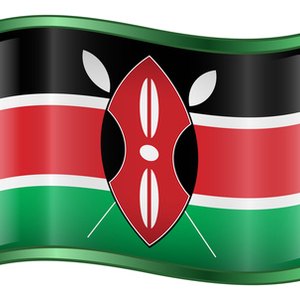
Opening a bank account in Kenya is wise if you work, travel or own a property in Kenya. If you work in Kenya you can fund the account from your employment income. You can also transfer money from the United States into your Kenyan bank account. It makes paying for local services easier and you have no concerns over exchange rates when you purchase goods. You can withdraw funds from an ATM for free. The United States government does not restrict citizens from opening a bank account in Kenya. However, if the money in your Kenyan bank account is greater than $10,000 you must declare it on your annual income tax return to the Internal Revenue Service. Interest earned or dividend payments received should also be declared.
Open a bank account in Kenya with a bank represented, or based, in the United States. You will be able to manage your account and transfer funds easier. Should you have problems with your account, you will be better placed to have the matter resolved.
Select a large bank with a good branch network. The largest bank is the Kenya Commercial Bank (part of KCB Group, the largest financial services group in East Africa). The two largest foreign banks are Barclays and Standard Chartered (both based in Britain). Citibank is also well represented. All four banks have offices in the United States from which you can open a bank account in Kenya.
Contact the bank of your choice. Choose a conveniently located bank, one you can visit in person. This is the quickest way to open a bank account in Kenya. Get an application pack mailed.
Read the pack carefully. Check the minimum deposit needed to open the bank account. Ensure you have the documents needed to open a bank account in Kenya. You will need a passport, proof of address and evidence of income, at a minimum. Complete the application form.
Call the bank to make an appointment. Ensure you have your application form, other documents and your deposit. All documents must be originals. Your application form will be checked. Documents will be verified, copied and given back to you.
Wait for your account details to be mailed to you. Debit and ATM cards will be mailed separately. The process can take one to two weeks depending on the bank you have chosen. Citibank, Barclays and Standard Chartered may be quicker.
Tips
The banks listed in this article are larger banks. See resources section for details of all regulated banks in Kenya. Standard Chartered, Barclays, Citibank and Kenya Commercial banks offer Internet banking facilities, as do some other international banks present in Kenya.
Warnings
Ensure you carefully check the Kenyan regulations regarding transfer of money between the United States and Kenya. You may need to make declarations for amounts in excess of certain limits. You bank can advise you.
References
Tips
- The banks listed in this article are larger banks. See resources section for details of all regulated banks in Kenya.
- Standard Chartered, Barclays, Citibank and Kenya Commercial banks offer Internet banking facilities, as do some other international banks present in Kenya.
Warnings
- Ensure you carefully check the Kenyan regulations regarding transfer of money between the United States and Kenya. You may need to make declarations for amounts in excess of certain limits. You bank can advise you.
Writer Bio
Stephen Benham has been writing since 1999. His current articles appear on various websites. Benham has worked as an insurance research writer for Axco Services, producing reports in many countries. He has been an underwriting member at Lloyd's of London and a director of three companies. Benham has a diploma in business studies from South Essex College, U.K.

